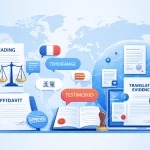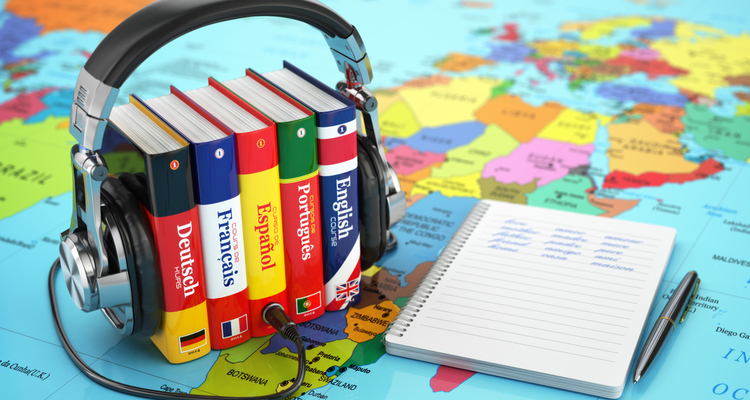Human communication relies heavily on language, a multifaceted and constantly evolving system that embodies cultural, historical, and emotional subtleties. As there are thousands of languages spoken across the globe, translation acts as a crucial link that unites people and enables comprehension beyond linguistic boundaries.
However, building this link is far from simple. The sophisticated nature of languages occasionally makes it difficult to translate certain words or phrases, leaving translators puzzled as they strive to preserve the core meaning of the original text.
Translation is more than just replacing words from one language with another. It frequently involves capturing and expressing the cultural context, emotions, and nuanced meanings present in the source language.
As we explore the complexities of translation, we will uncover how linguistic, cultural, and historical aspects can render some words notoriously hard to translate.
Why Can’t Some Words Be Translated?
The craft of translation encompasses the communication of meaning, context, and emotions inherent in the source language while preserving the core of the original text.
Nevertheless, specific words can present considerable obstacles for translators, rendering them seemingly untranslatable. Here are some factors contributing to this phenomenon.
- Linguistic Variations: Languages possess distinct grammatical structures, syntax, and vocabulary that may not have direct counterparts in other languages. These variations can make it challenging to identify a suitable word or phrase that conveys the same meaning, leading to approximations or explanations instead of a direct translation.
- Cultural Aspects: Words and phrases frequently have deep connections to a culture’s history, customs, and values. During translation, accurately conveying these cultural nuances can be difficult, as the target language might lack terms with the same context or implications.
- Idiomatic Expressions and Proverbs: Each language has idiomatic expressions and proverbs representing specific meanings or insights within their cultural framework. Translating idioms could cause confusion or loss of meaning, as their significance often depends on metaphors, symbolism, or wordplay unique to the source language.
- Untranslatable Words: Some words embody concepts or emotions exclusive to a certain language and culture without direct equivalents in other languages. These untranslatable words necessitate extensive explanations or descriptions to accurately convey their meaning, which can be a challenge for translators.
- Regional Dialects and Slang: Languages frequently feature regional dialects and slang that can differ substantially between areas. Translating these words can be problematic, as they might be unknown to speakers of the same language from distinct regions, let alone speakers of other languages.
- Ambiguity and Multiple Meanings: Certain words bear multiple meanings depending on their usage context. Translating such words can pose difficulties, as the translator must precisely discern the intended meaning within the particular context.
In conclusion, the intricacies of languages, cultural contexts, idiomatic expressions, untranslatable words, regional dialects, and ambiguity contribute to the challenge of translating specific words. Despite these hurdles, adept translators persist in overcoming these linguistic obstacles, endeavoring to prevent mistranslations, as well as bridge the divide between various languages and cultures and promote understanding and unity in our diverse world.
What Are Some Difficult Words To Translate?
Translating can be an intricate process due to distinct words and phrases in languages that lack direct counterparts in others. Certain words can be especially challenging to translate as they represent concepts or emotions closely tied to a specific culture. Here are some examples of such words.
- Saudade (Portuguese): Saudade describes an intense emotional state of nostalgic yearning for someone or something absent, often coupled with the profound realization that the subject of this longing may never reappear. This mix of sorrow, loss, and affection makes it difficult to express accurately in other languages.
- Hygge (Danish): Hygge is a Danish notion that captures the sensation of comfort, satisfaction, and well-being derived from relishing life’s simple joys. It can be experienced individually or with loved ones, indoors or outdoors. The term encompasses an entire ambiance, making it hard to translate into a single word.
- Wabi-sabi (Japanese): Wabi-sabi represents a Japanese aesthetic that appreciates the allure of imperfection and transience. It esteems authenticity, minimalism, and the natural aging process. Finding an equivalent English word that conveys the same depth and nuance is challenging.
- Mamihlapinatapai (Yaghan): This term from the Yaghan language, indigenous to Tierra del Fuego in South America, defines the unspoken yet significant glance exchanged by two individuals whom both wish to initiate something but hesitate to take the first step.
- Torschlusspanik (German): This word, literally translating to “gate-closing panic,” denotes the anxiety of time running out or opportunities slipping away, particularly concerning life objectives like career, love, or family.
These examples demonstrate that some words are deeply ingrained in cultural contexts, making them hard to translate into other languages. The challenge encompasses not just identifying an equivalent word and conveying the emotions, subtleties, and ideas linked to the original term.
The Importance of Translator Competence
The intricacies of translating challenging words demand exceptional proficiency from translators. In addition to mastering the languages involved, a skilled translator must have a comprehensive understanding of cultural and historical contexts and the aptitude to deduce meaning from frequently ambiguous language structures. They should also excel in identifying idiomatic expressions and proverbs, as well as interpreting the emotional essence of the text.
In contrast, an inept translator might distort the intended meaning, resulting in confusion, miscommunication, and translation mistakes in cultural context.
Investing in proficient translation services is essential for producing accurate and culturally pertinent documents. In the end, adept translators serve a fundamental role in promoting understanding among diverse languages and cultures.
Subtitles

Professional and Accurate Subtitle Services for your Videos.
- Video subtitles specifically tailor-made for improving accessibility.
- Using highly experienced subtitlers with years of industry experience.
- Professionally written and expertly timed.
Translation

We help the world’s top companies translate their content in over 73 languages!
- We localize content for internet websites, games, travel, cryptocurrencies, and more
- Expand your global audience by adding different languages.
- We work only with qualified translators and experienced content creators
Audio translation

Ensuring full accessibility for Blind and visual impaired audiences.
- Visual descriptive events as they occur in the video.
- Working with top audio describers to perfectly describe what is happening on-screen
- Professional sound recording.









